So a few weeks ago I finished a pilgrimage in Spain. In a world that seems daily rocked by strife and the confusions of a modern age walking a 1000 year-old pilgrimage route seems a little out of place. Standing a few weeks away from it I already miss the simplicity of the road. That certain knowledge that all I had to worry about was walking. Here are a few other thoughts about the trek.
First off some numbers. I spent approximately 31 days in Spain. 21 of them were spent largely walking. I spent 1 day in a small town resting, and 1 day in Leon wandering around, and then 8 days on the coast of Galicia in a small town. During those 21 days I estimate I walked approximately 553 km which translates to around 343 miles. So we averaged about 16.4 miles a day which was slightly faster than the average of the ~150 people we started with in France. Our longest day was a 24 mile slog lasting 11 hours. The lightest walking day was 5 miles. This is about 250 km shorter than my intended route.
On the long strange walk to Santiago we ran into moderate ankle issues in Carreon de los Condes, a small town about half way to Santiago via el Camino Fances. These were bad enough that the doctor recommended 5-7 days rest. With a plane to catch it became apparent that we would not be able to finish in time. So we hitched a ride to the Galician coast and spent 8 days resting and tide pooling, and eating simple meals while watching the sun set into the vast sea around us.
Still having a plane to catch I separated from my traveling buddy then walked from our beach house to Finisterre, the unofficial end of el Camino de Santiago, which was some 40 km around the cove to the north from our beach house. Once at the end of the Way I followed the trail backwards to get to Santiago de Compostela in time for my plane, a trip of about 102 miles.
I walked through mountain passes, young forests, Basque villages, wheat fields, beaches, coves, vineyards, towns, rivers, cities, highway sides, rain, fog, sun, and one herd of sheep. I saw people from all over Europe, Brazil, Mexico, Argentina, Australia, South Korea, America, and many other places. I visited countless centuries old Catholic churches with various degrees of orthodoxy. I saw the tombs of kings, bishops, knights, proto-humans, and many ordinary people. I ate bread, Nutella, cheese, chorizo, paella, pulpo, pata, pepino, muesli, Spanish tortilla, Kaz, tortas, empanadas, and this strange Galician sourdough cornbread.
Again and again while I was walking across Spain people would remind me that the pilgrimage doesn’t end when you get to Santiago, it just begins. Of course this is wrong. I have a little certificate in Latin that proves I finished my pilgrimage in Santiago. It is over. I made it. And of course that isn’t what they meant.
The bible says it well in Hebrews 11 in one of the few instances where the word “pilgrim” is used,
13 These all died in faith, not having received the promises, but having seen them afar off, and were persuaded of them, and embraced them, and confessed that they were strangers and pilgrims on the earth.
14 For they that say such things declare plainly that they seek a country.
15 And truly, if they had been mindful of that country from whence they came out, they might have had opportunity to have returned.
16 But now they desire a better country, that is, an heavenly: wherefore God is not ashamed to be called their God: for he hath prepared for them a city.
Life is a pilgrimage. A pilgrimage to a heavenly city built by God in a land afar off. A journey to a more perfect self, a more perfect future, a cleaner, purer humanity. And every day we have to pull on our boots and decide if we will keep walking towards that unseen destination knowing that we will not reach it today, or next week, or maybe not ever. If we keep walking to that goal we remain pilgrims.
I get that. It’s quite right. So many pilgrim references scattered through song, literature, and life make so much more sense to me now. But I did finish SOMETHING. And I do have some deliverables from those 340 miles.
——-
1st. Several days into the trip my legs were starting to break into their new prominence in my life and my bored brain had irritated my traveling buddy enough that we were walking apart and in silence for a while. I was pondering about the purpose of my trip. Fellow pilgrims kept asking what a couple of Latter-day Saint boys from Utah were doing on a medieval catholic pilgrimage route. Walking down a muddy road through a Navarran forest I recalled I had a desire to learn more about the nature of God. Not just nature but personality. What was God like? If he were walking with me along the trail what would he talk about? I was tired, I was grumpy, my feet hurt, and I was a little bored: not exactly in a spiritual mood. Was God on this trail? I thought about the countless old stone churches of Europe and the Catholic masses I had attended. Was God there? I didn’t feel particularly inspired by the stiff ceremonies where I had no idea what I was supposed to say and do. I thought about the peaceful green countryside mixed with the daily lives of shopkeepers, farmers, and the remaining townsfolk. Was God in that experience? Was this a sacred trail consecrated by the millions of feet that had trod it before me?
Well, yes. I realized with a start that the God I believe in is everywhere. He doesn’t exist only in my church buildings. He isn’t found just in temples. He doesn’t just love my people. He loves all people of all time and all places. So of course he was attending the mass in Roncesvalles. He was walking with the old German couple up the Alto de Perdon just as he was with the Korean couple and the French couple. So was this a sacred trail? Yes, because God was with me on it, just like he is on every trail in every country.
I actually stopped and looked around to see if there were footprints next to me. It was the same muddy forest trail it had been before. But I had opened my eyes and felt the company I was in, that I am always in. The feeling faded over the miles but I am grateful for the remainder and I remain confident that he is with me still.
——-
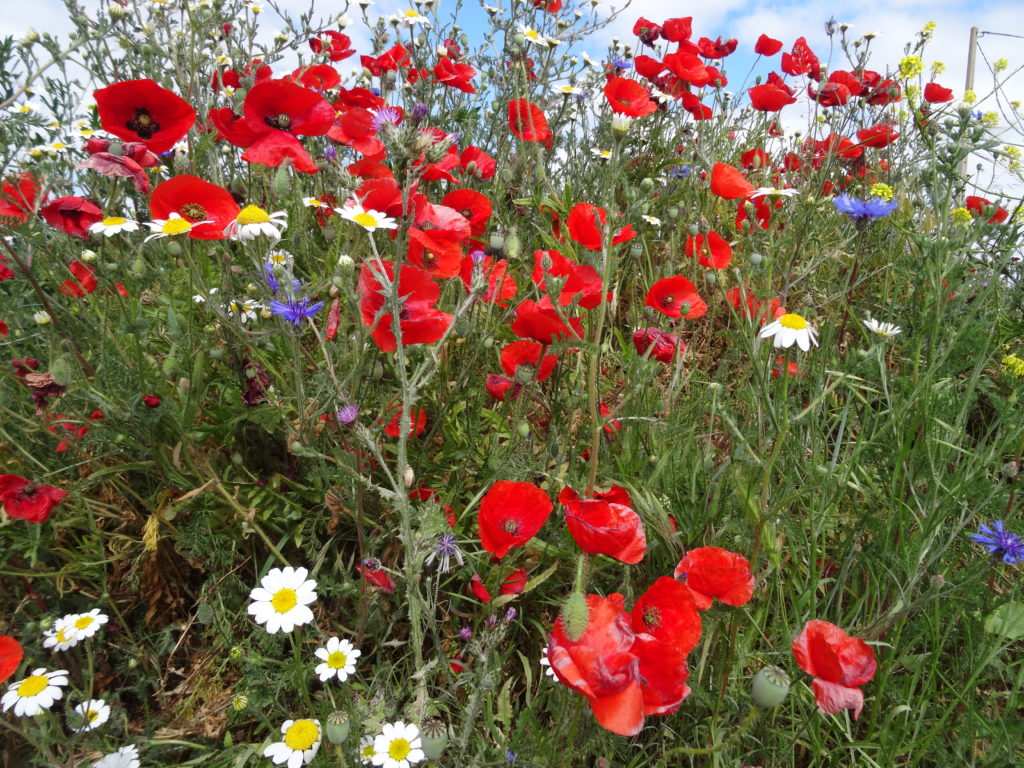
2nd. On the Galician Coast I was approaching the small town of Muxia. There is some debate over the proper place to end the pilgrimage route with Muxia being one of the options. Its claim to fame is that when St James was in Spain preaching the gospel he was discouraged and Lady Mary came to him in Muxia in a stone boat to encourage him in his labors. The remains of the stone boat make up the rocky coast of the point. I sat for several hours on those rocks pondering the message of the story. I’ve been a missionary before. I know it’s hard. And I remember the times when some kind soul reached out and gave me small encouragements. I didn’t need those small acts to keep going. They didn’t solve my problems or give me some awesome new ammunition to solve my problems with. But they made the going a little less painful. I think some forms of grace are like that. Perhaps those divine gifts we like to call tender mercies in the restored gospel of Jesus Christ. Sometimes God steps in and gives you a little boost. He doesn’t always take away the trials or take you out of the danger but he gives you a little encouragement and perspective that this too will pass and you are fighting the good fight.

——–
3rd. As I walked the sandy beaches to the town of Finisterre I searched for inspiration. Surely here at the end of the world there was something? I opened up my iPod, my source of scripture for the trip, and read in the book of John, Chapter 17,
And this is life eternal that they might know thee, the only true God…
Having walked with God for a couple of weeks what had I learned about him? Through all the miles God had been there, I recognized that. He had heard the prayers of the pilgrims in Tosantos, the sermons of the priests in Formista and Los Arcos and all the others. He was aware of the pained blister-riddled feet of Karen from Canada and the old German guy who had the heart attack near Pamplona. He knew all the Koreans that none of us could talk to. He saw the faith of Vandir from Brazil who stopped to pray at every chapel and shrine he passed. He listened to the Catholics and the Lutherans as well as the Latter-day Saints. He appreciated the sacrifice of Jerry the Dominican Friar who was on sabbatical after 26 years of monastic life. He was granting grace in some measure to all of us.
The word was mercy.
God is merciful. It is part of his personality. He wants to act in infinite compassion for the benefit of each of us. He rejoices in our success and mourns for our sorrow. He wants to forgive us of every sin we commit. All of us. That desire to grant us mercy is unconstrained by the requirements of obedience or justice. He loves all of us.
Now, this doesn’t mean that justice doesn’t have power. He is constrained in extending mercy by our willingness to receive it. But it is less the strewed accountant at the ledger keeping things balanced and more the generous ice cream server attempting to cram every possible ounce of ice cream into the cone proffered him.
I think the mercy and forgiveness of God extends much further than many of us think. In fact, it may even extend to me.
In Muxia I was given a certificate that states, (my translation from the original Gallego),
Those Pilgrims who choose the sanctuary of the boat as the last of their long walk will receive the precious gift of forgiveness, the prize of consistency in faith.
(The certificate was authorized by a nice young lady at my hostel. I’m not completely sure she has the authority to forgive sins but it was a lovely gesture.)
I think God forgave me long ago. He forgives eagerly, and frequently. For me anyway, the hard part is learning to accept that mercy and forgive myself.
There is one last moment on the camino that I want to record. I walked the last 102 miles or so alone. I was walking backwards having started near Finisterre. My plane was taking off in Santiago so I had to get there. Rather than pay 3 Euros for a bus I walked. It was kind of hard because the trail is marked with arrows indicating the direction of the destination not the origin. Also going backward I didn’t have any fellow pilgrims to walk with because they were all walking the other way. The last day I woke up early so I could be sure to arrive in Santiago in time for the noon pilgrim mass. I walked through a dark and foggy morning and a series of hills and valleys. On the last hill, after much anticipation, I walked around a bend and saw the city of Santiago de Compostela liberally coating the hillside. By far the tallest structure was the Cathedral of Santiago in the center of the city with its three spires piercing the sky. The feeling of accomplishment, of weariness, of excitement and awe led even a skeptical scientist like me to sit on a tree stump and shed a few silent tears. I expressed my wonder at the sight to an Irish pilgrim who was passing by and he promptly shook my hand having experienced the same thing the day before when he had entered the city. I had an exceedingly light heart as I entered the city.
I am not ignorant of the imperfections of the Camino de Santiago. I readily see the errors in the mythos behind the tomb of Santiago and the commercialization along the way. I know about the political motives in establishing the route on the edge of Muslim territory. Santiago is certainly no divinely built city. I see the hypocrisy of pilgrims claiming a religious experience while routinely recovering from hangovers due to their overconsumption of the abundant wine along the road. But that’s okay, because this pilgrimage is only an analogy of the real journey.
Every pilgrimage is a unique experience tailored to and by each soul that engages upon it. And every life is a pilgrimage. We climb mountains and endure plains. We get rained on and see blue skies. We make friends and leave them behind. And eventually we climb the last hill and see the heavenly city where we will find the pocos fruits of our labors submersed in the mercy of our king. It will be a breathtaking experience, full of joy and a few tears. Let’s make it a buen camino.

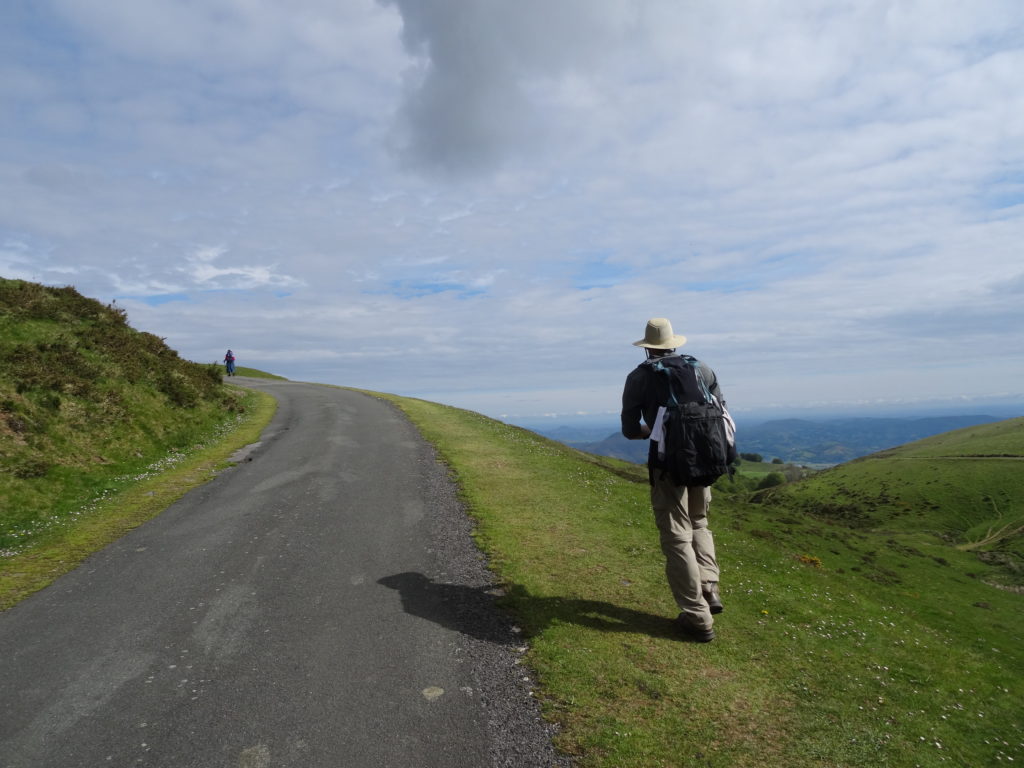
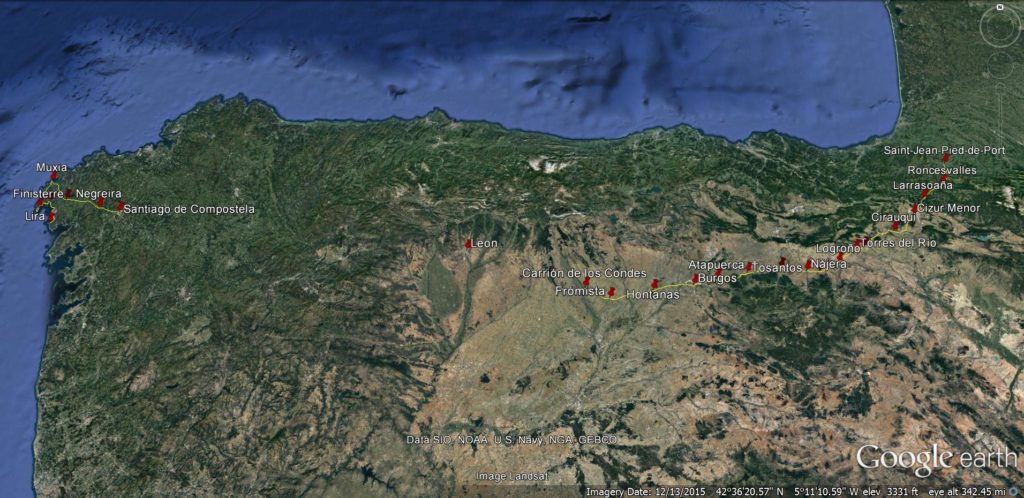

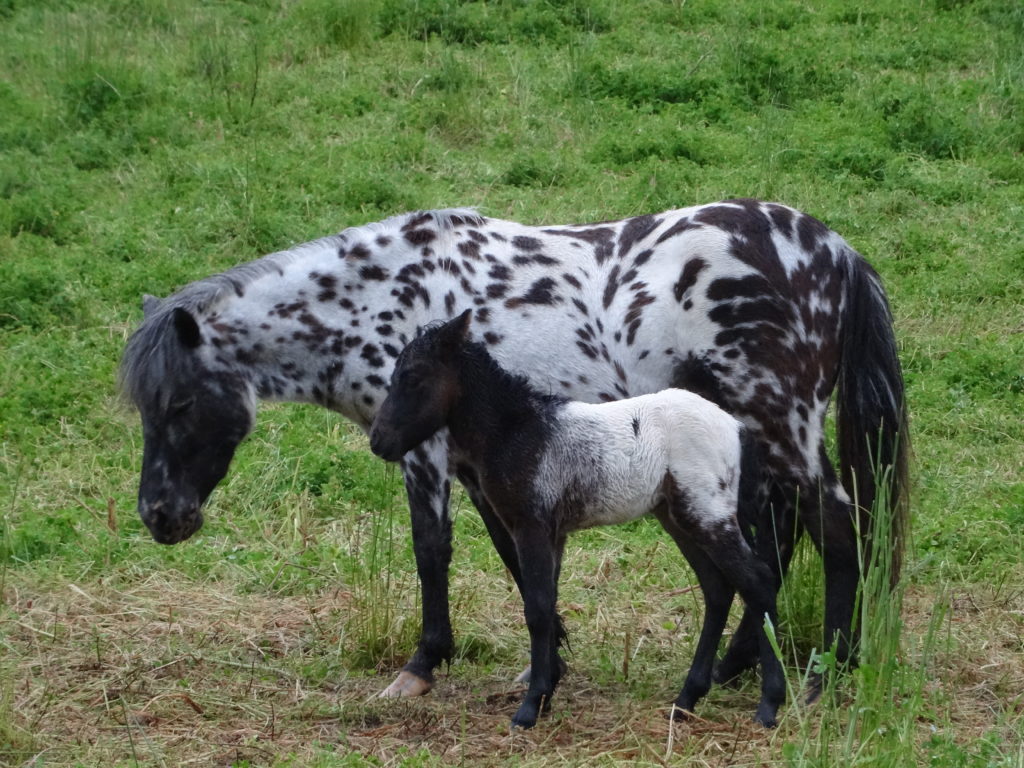
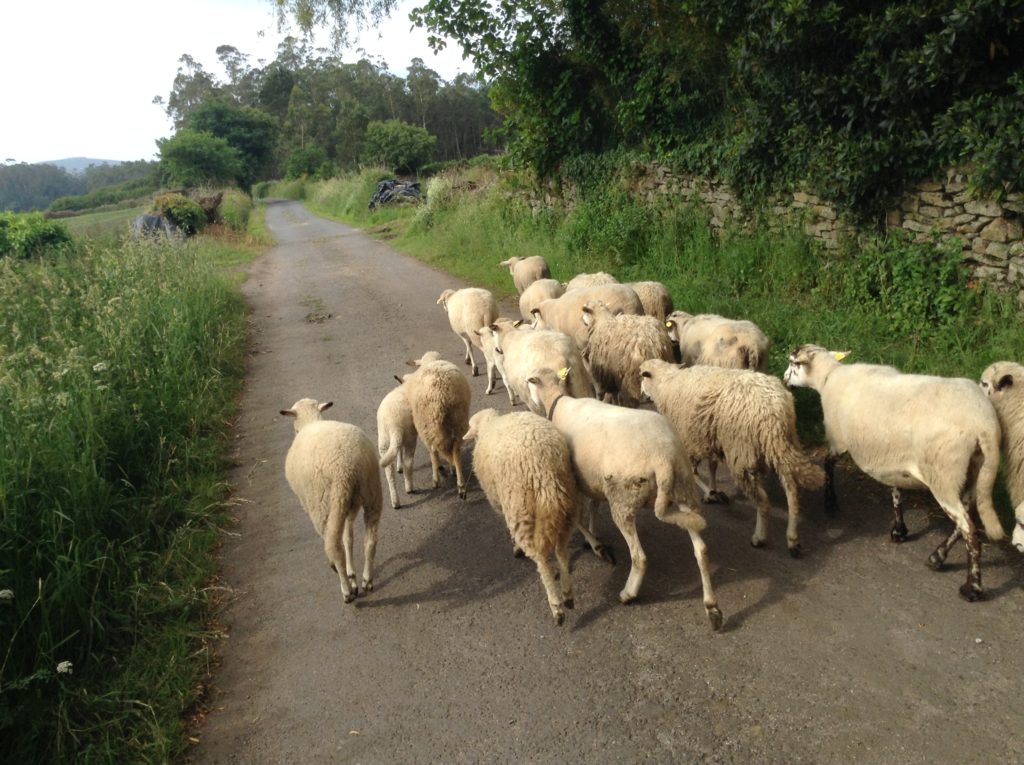
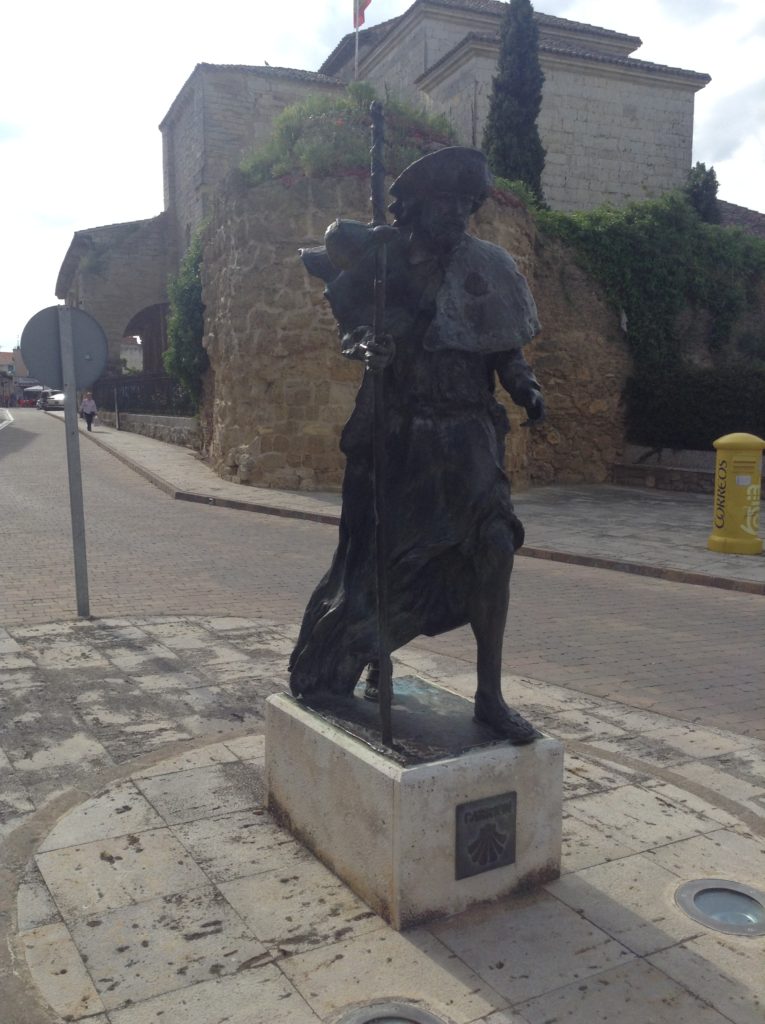
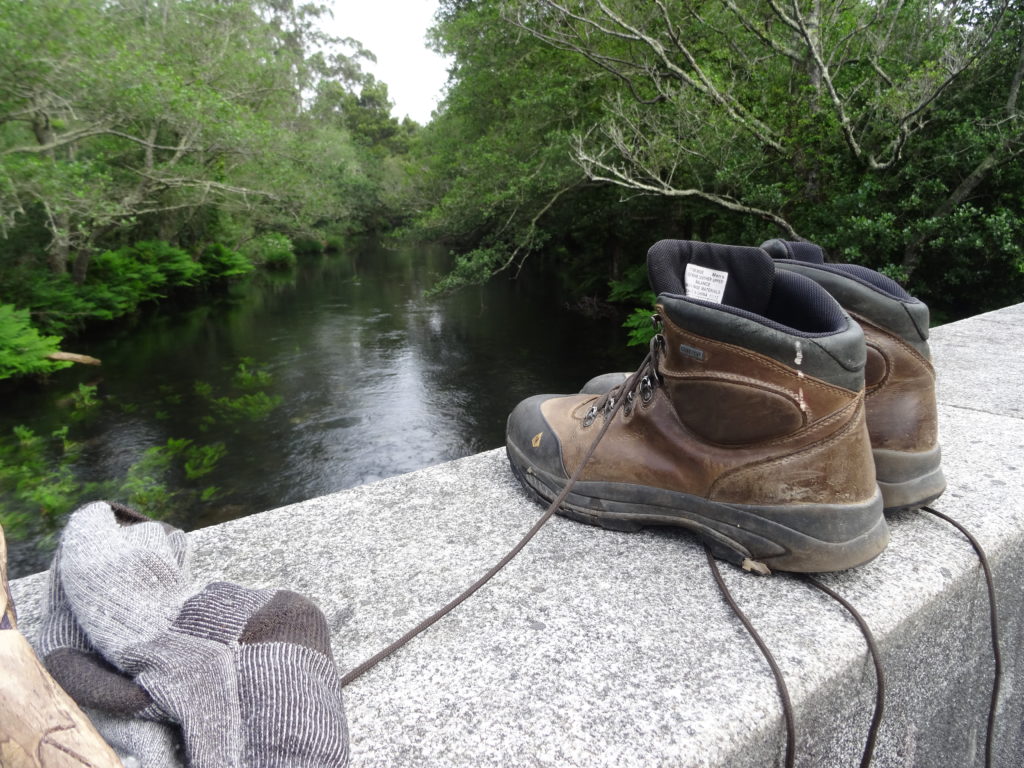
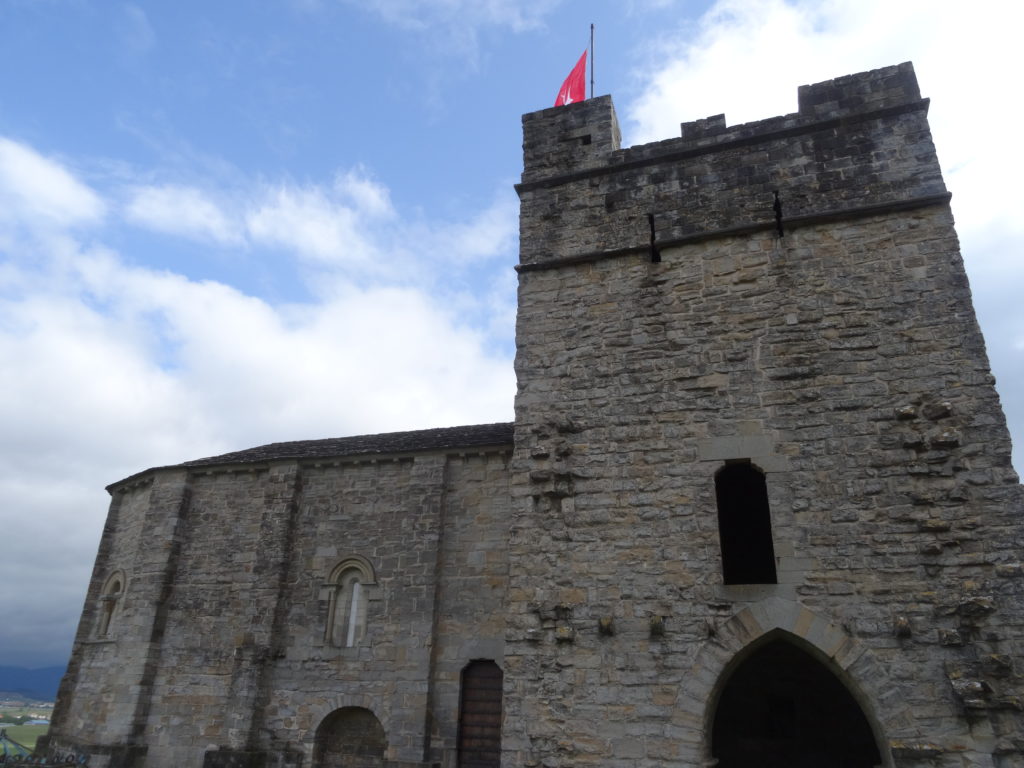
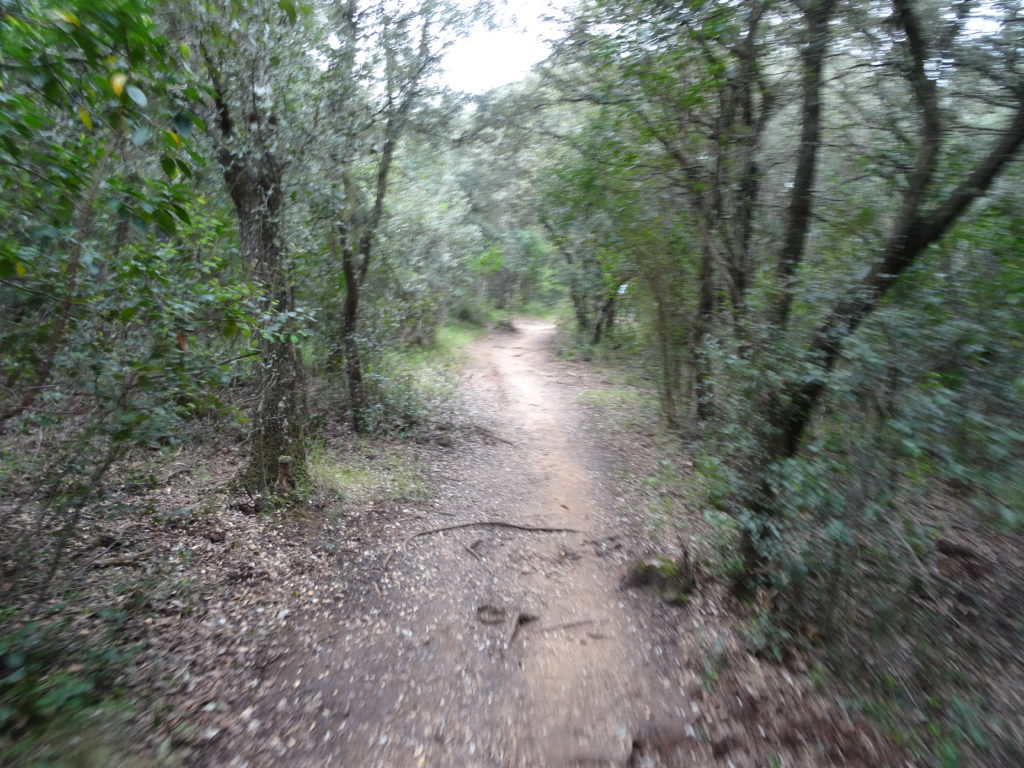
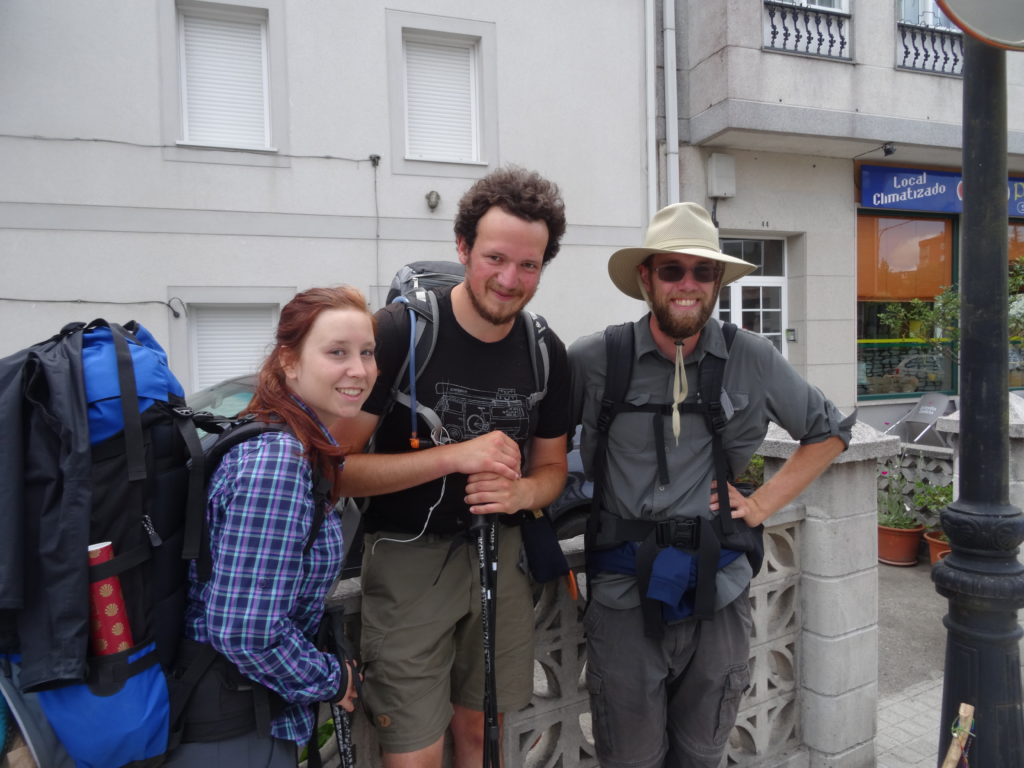
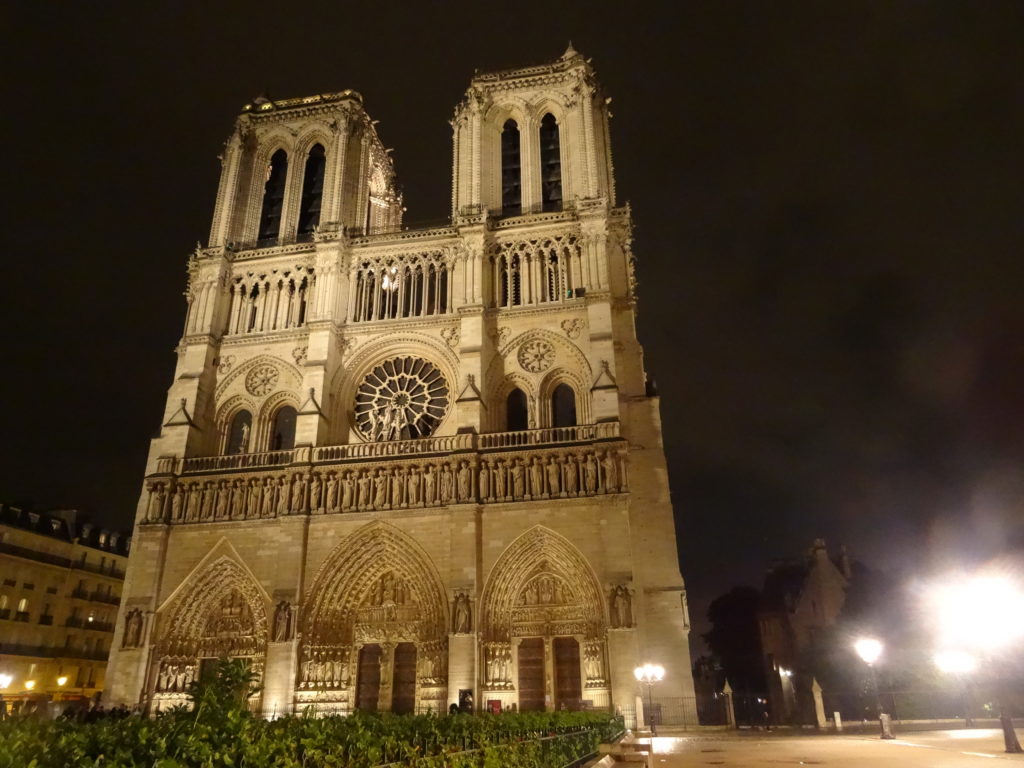
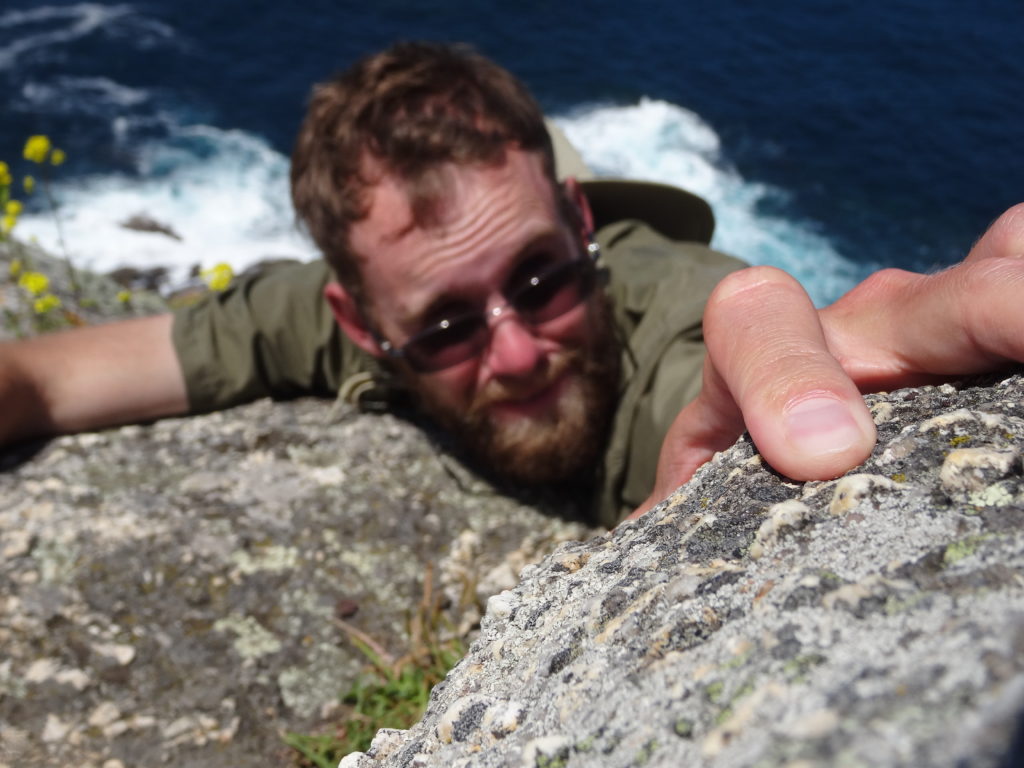
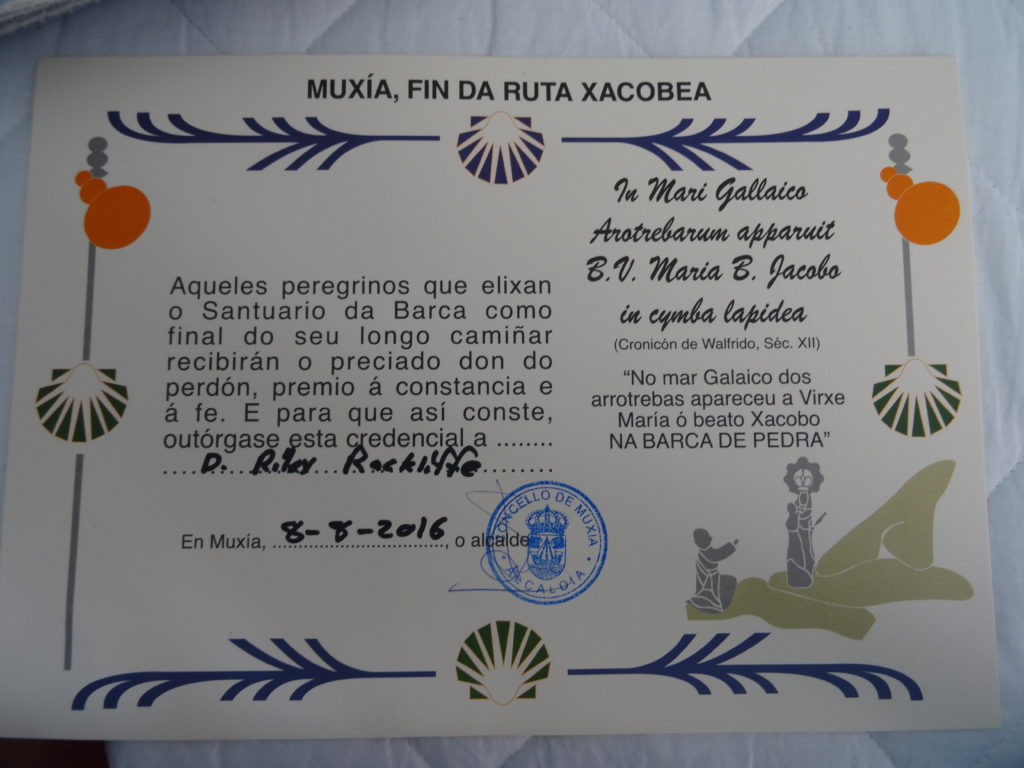
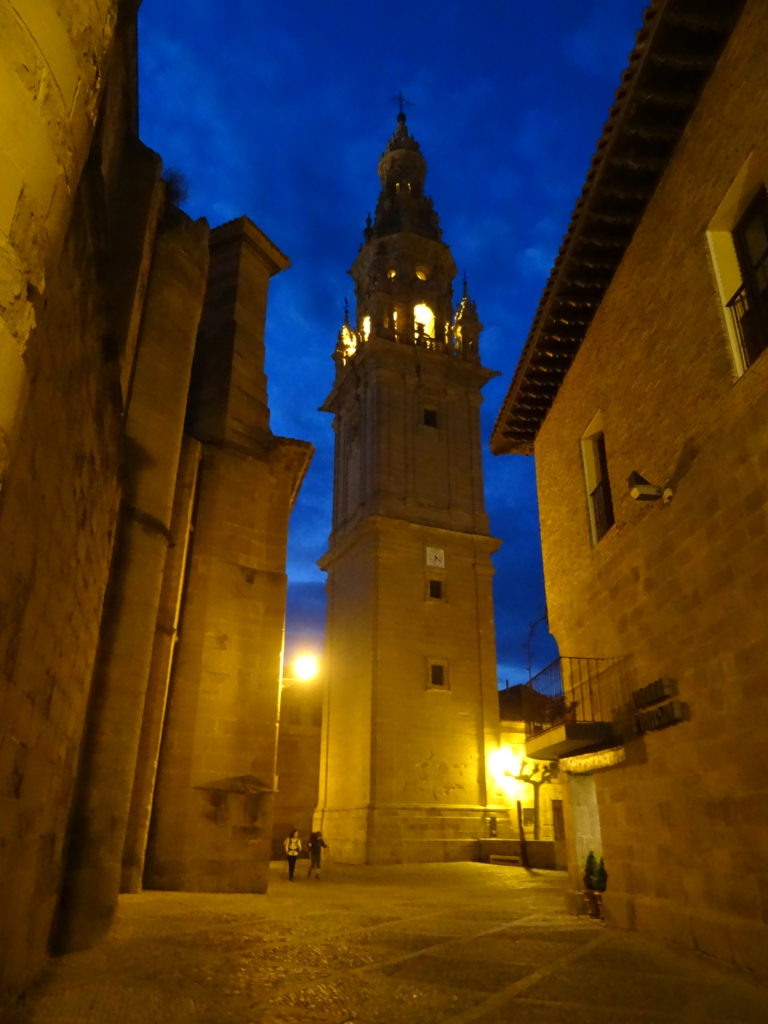
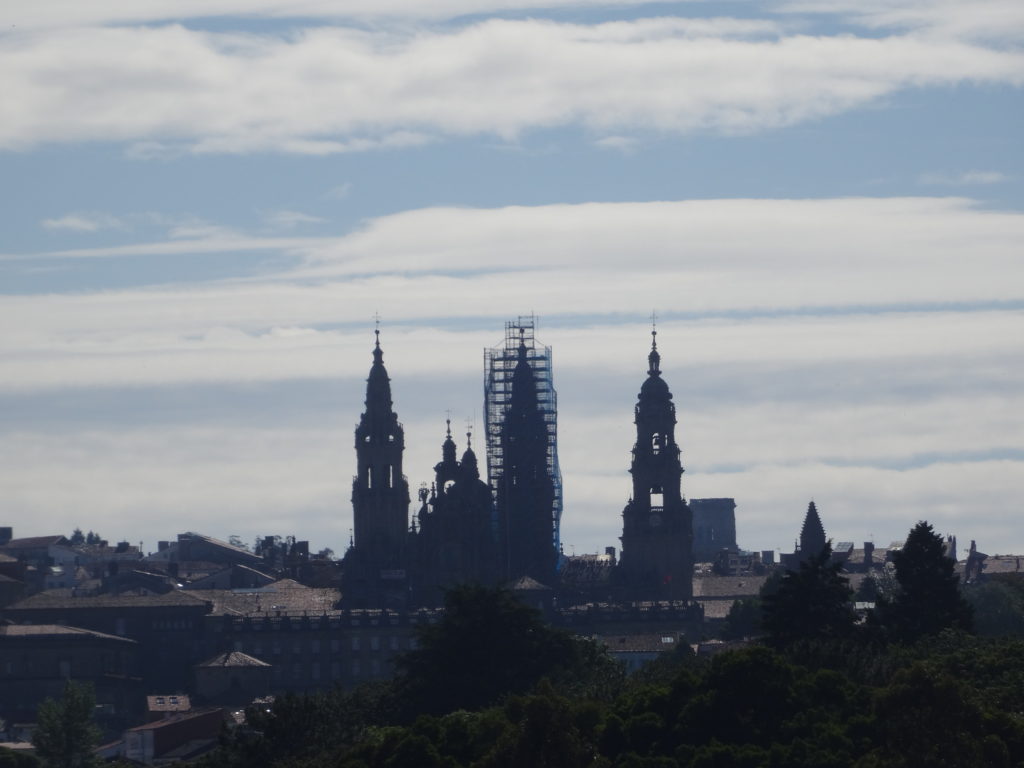
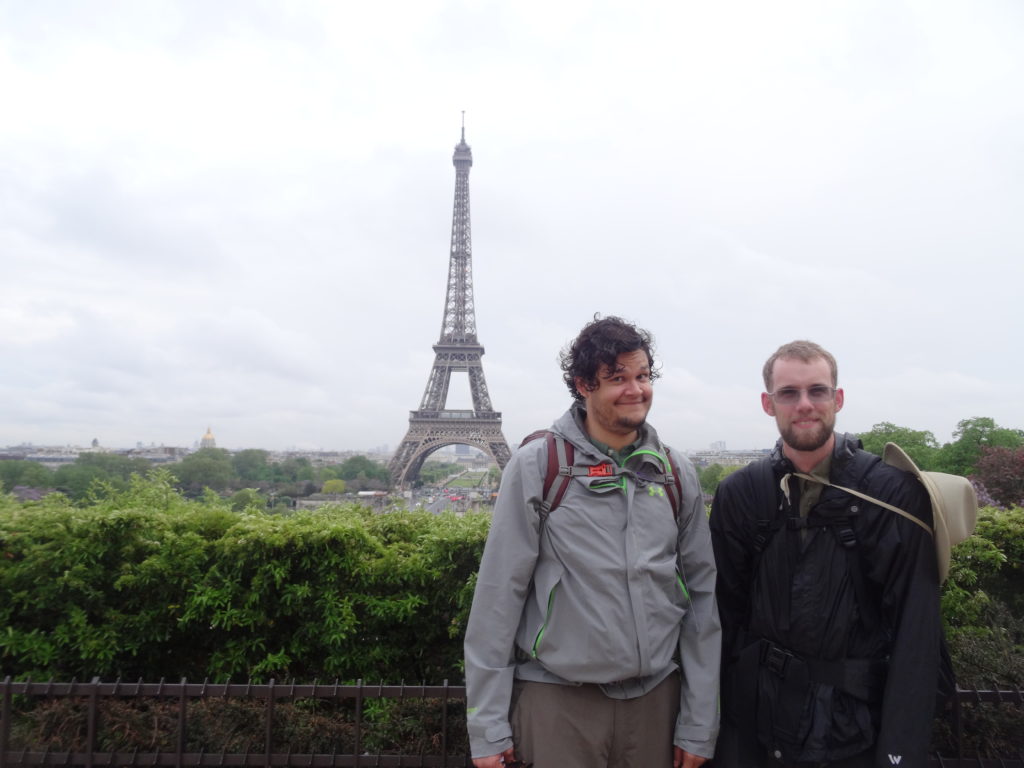
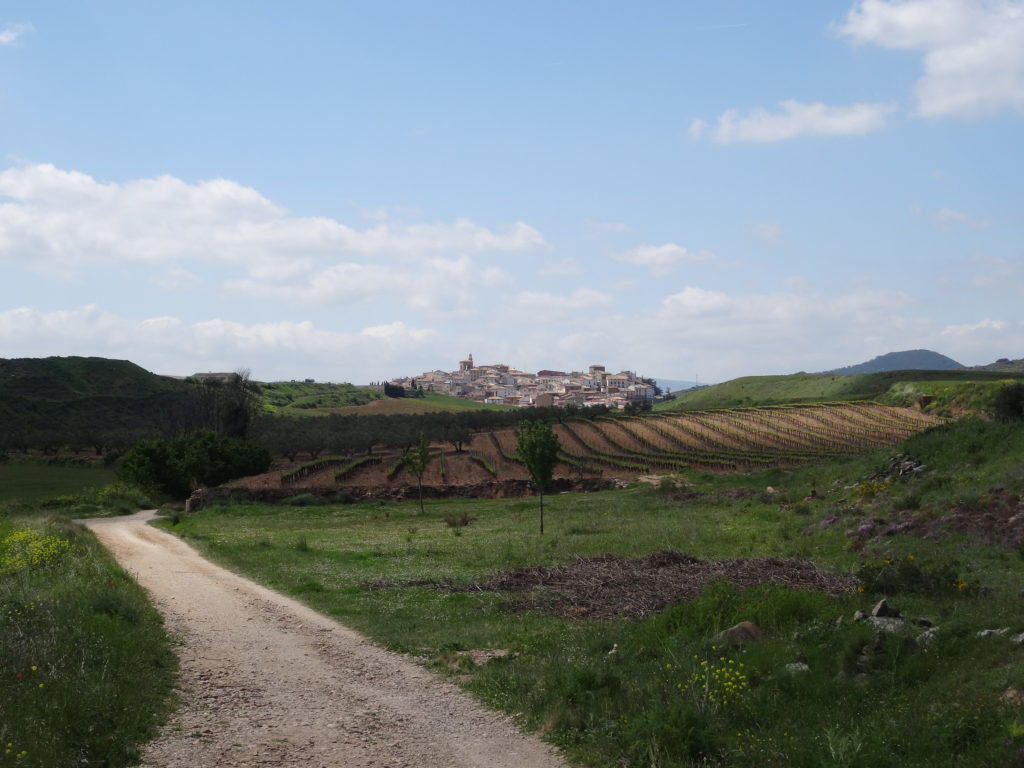
just found this and found some happy tears.
I love your blog. You inspire me.
Very awesome stuff, man! Being someone who’s very spiritual, but not from the Mormon faith – being someone who is not a native utahn, it is sometimes difficult to understand their methodology and sometimes close mindedness to other’s beliefs. In my humble opinion, that makes you priceless.